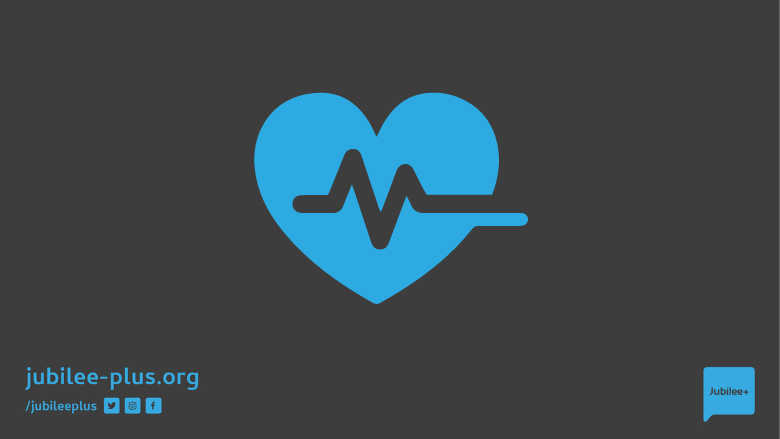
#GE24: Health Inequality Briefing
Today Ben Parish kicks off a monthly briefing series, which focusses on inequality as experienced across the UK.
This series forms part of our aim to equip Christians and churches with information and tools to approach a General Election later this year. To do this we'll be looking in the coming months at how the gap between rich and poor affects outcomes in health, housing, education and more.
----
According to the Office for National Statistics, the gap between the richest in our society and the rest of the population – despite all the efforts to highlight this problem by charities and think tanks, and various government policies to try and address it – actually widened rather than receding in the 10 years leading up to the COVID pandemic.*
Inequalities often arise when the rich become wealthier at the expense of the poor, something God clearly warns against repeatedly in Scripture (see Proverbs 22:16, Isaiah 58:3, Luke 3:11-14), and institutes protections against in laws given to the Israelites (the year of Jubilee being just one such provision)
Health inequalities primarily show us the differences that exist in people’s likely health outcomes, the care they receive, and the opportunities that they have to lead a healthy life.
Data from healthcare charity The King’s Fund** show how all of these are adversely affected by living in a deprived community:
- Women living in the most deprived 10% of areas die almost 8 years younger than women living in the least deprived 10% of the country. For men, this life expectancy gap increases to over 9 years’ difference.
- People who live in the most affluent areas have 20 years longer of good health, on average, compared to those living in poverty.
- Deprivation increases a person’s chance of having more than one long-term health condition. Those people living in the most deprived 20% are likely to develop, on average, multiple long-term health conditions 10 years earlier than those in the least deprived 20%.
- The number of GPs per 10,000 people is lower in deprived areas compared to affluent areas.***
How does tackling health inequality fit into the life of a believer, and should it be on the agenda of a local church when there isn’t a verse in the Bible that is explicitly clear on it?
Jesus started His public ministry with words that are sometimes described as his “manifesto” and show us that poverty and justice issues are matters of central importance to the ministry of Christ (see Luke 4:16-21).
In verse 18, Jesus quotes the prophet Isaiah, and reminds his listeners of age-old promises, that the anointing of the Holy Spirit will be demonstrated and outworked by the preaching of good news to the poor, the proclamation of liberty for the captives, the recovery of sight for the blind and the offer of freedom for those who are oppressed. Jesus declares himself as the fulfilment on Isaiah 61 promises, and if we are ‘in Christ’ we can confidently count on his promises, and carry this mandate to a broken world.
Growing inequalities in society lead to greater numbers of people experiencing the oppression, debilitating discouragement and isolation that unbroken, and often generational, cycles of poverty bring. Poor health outcomes are a significant part of the emerging picture in our nation.
Imagine the impact that the Church in the UK could have on our local communities if we took up this invitation from Jesus to enter into His Kingdom work and see health inequalities reduced. Wouldn’t it be incredible to see and hear of the statistics reversing in communities where local churches are actively doing the work of the Kingdom?
Read here how the River Center, Oregon stepped in to meet the dental needs of a deprived community around them.
So, how can Christians/the church act to help those experiencing health inequalities and also to address their root cause?
Pray – why not start a prayer group in your church that focuses on praying for your local NHS Trusts or Care Services? You could find a contact person and ask them for regular prayer points. These points could range from the leadership, strategic goals, recruitment, staff welfare, patient care, chaplaincy, finances, etc.
Healing prayer – are there opportunities to offer prayer for the sick in your local community? Could you start/join any chaplaincy teams that exist to serve your community eg. street chaplaincy, hospital chaplaincy etc.
Volunteer – there is scope within every NHS Trust to get involved through volunteering. This gives you an insight into the pressures and demands of healthcare and also builds empathy towards those people in our society who are living with illness and poor health.
Support – are there healthcare workers in your church who would appreciate being prayed for and listened to? Why not contact your local NHS Trust to find out ways that you could support staff welfare?
Lobby – why not communicate with your local MP about the health inequalities that exist in your area? The Integrated Care Board oversees NHS & Care Services in your locality, and on their website, you can find information on how they are prioritising the need to tackle the inequalities in your region.
Advocate – are you able to bring a “voice to the voiceless” (Proverbs 31:8)? Are there social prescribing organisations in your area that you could contact to find out how you could advocate on behalf of patients?
Financial Support – do you as a church need to consider setting up a fund to help those in the church, on the fringe of church or individuals that you know, who are unable to access free healthcare?
Consider -
What is one question we should consider on this issue when deciding on who to vote for in the next General Election?
Who has committed funding and a plan to increase the quality of healthcare provided in deprived areas of the UK and therefore reduce the inequality that exists?
References:
*https://www.ons.gov.uk/peoplepopulationandcommunity/personalandhouseholdfinances/incomeandwealth/bulletins/householdincomeinequalityfinancial/financialyearending2020
**https://www.kingsfund.org.uk/publications/what-are-health-inequalities
***https://bjgpopen.org/content/5/5/BJGPO.2021.0066
----
Written by Ben Parish for the Jubilee+ blog
To download this briefing in PDF form, please click here.



